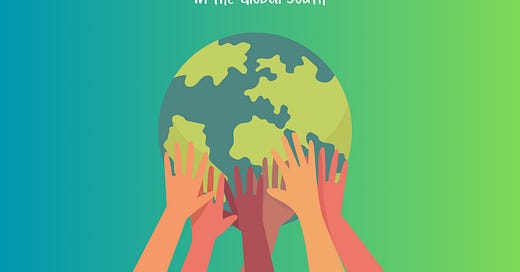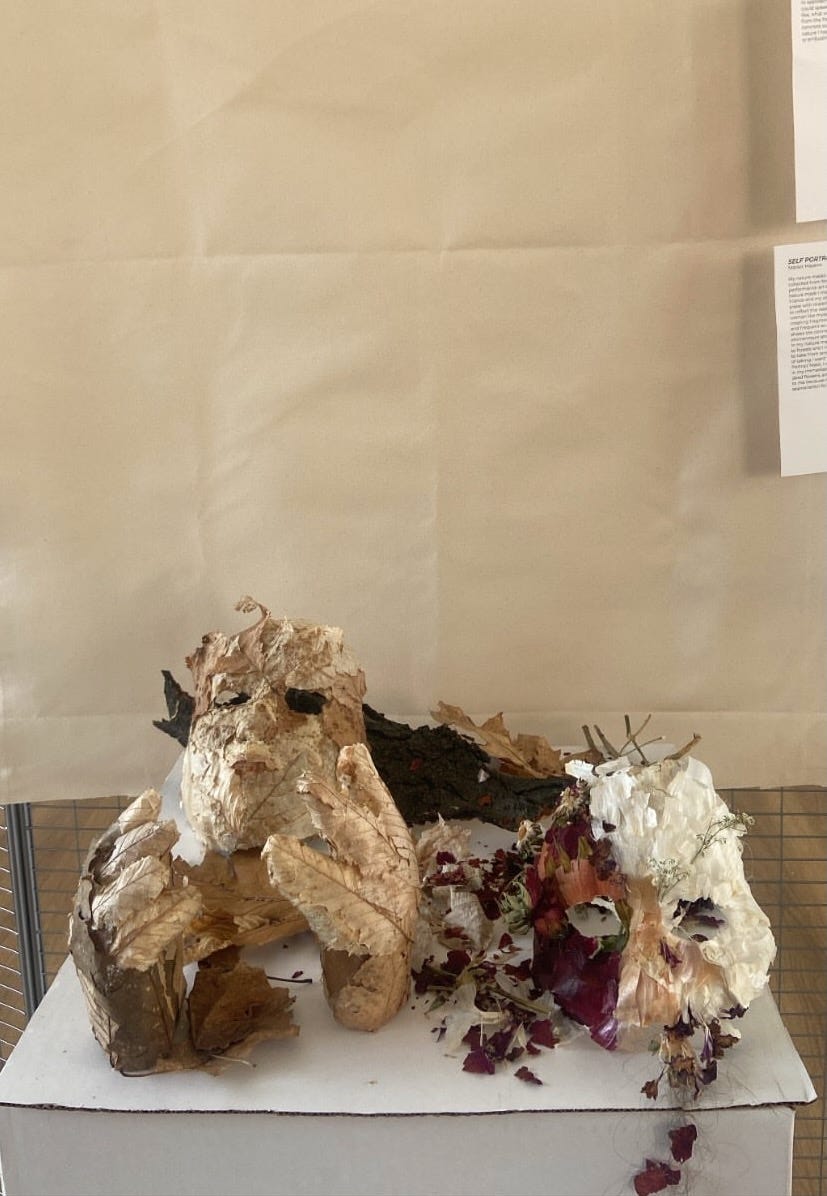Climate injustice in the Global South
An exploration of climate injustice in the Philippines, and overall the Global South.
In a conversation with Asad Rehman, Kamea Chayne (host of “Green Dreamer” podcast), delves into the conversation on the relationship between the effects of imperialism and environmental justice and equity in the global South — particularly highlighting the interesting relationship between Britain and India. It made me realize that climate justice was more than just investing in conscious brands, but it’s about truly diving into conversations around our overall connection that we, humans, have to the natural world, to Mother Nature.
As Earth Month is about to come to a close, I wanted to bring up this conversation. I was cordially invited to my alumni’s Earth Day Initiative organized by The New School’s Climate Justice Club. The Earth Day Initiative was an exhibition comprised of fine art, film, textiles, photography, and experiential pieces that explore the conversations we have on climate change, sustainability, and climate justice.
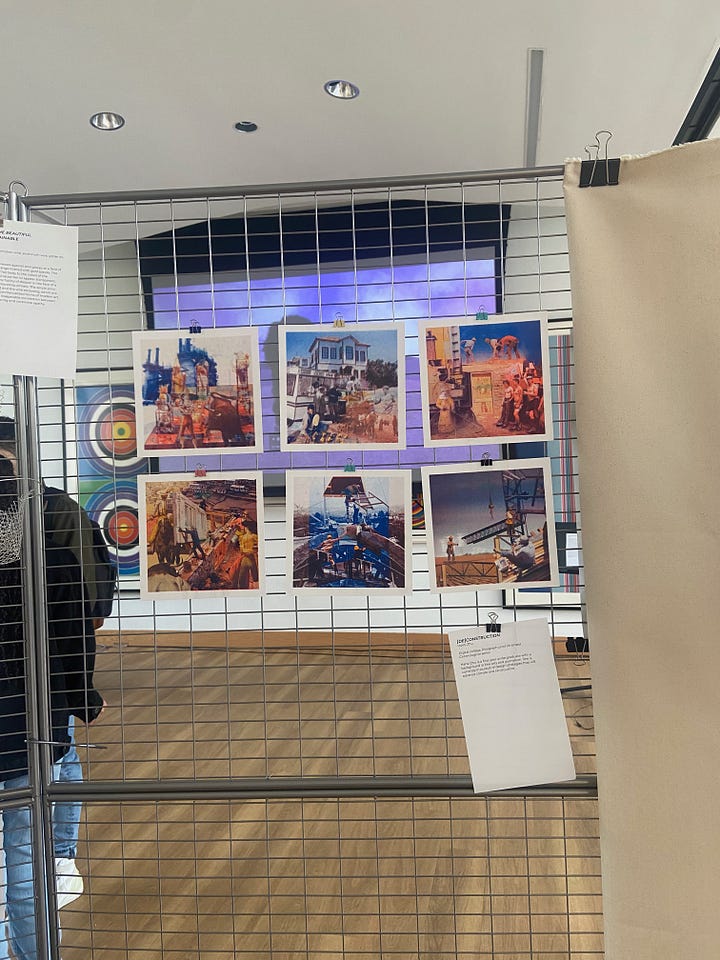

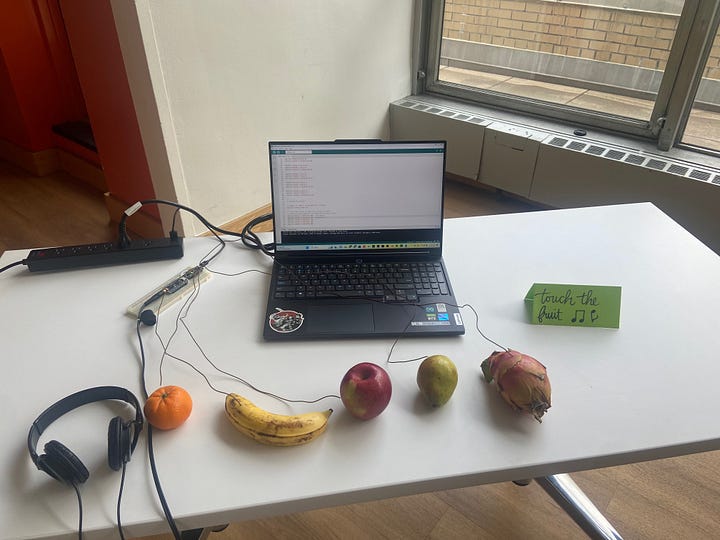
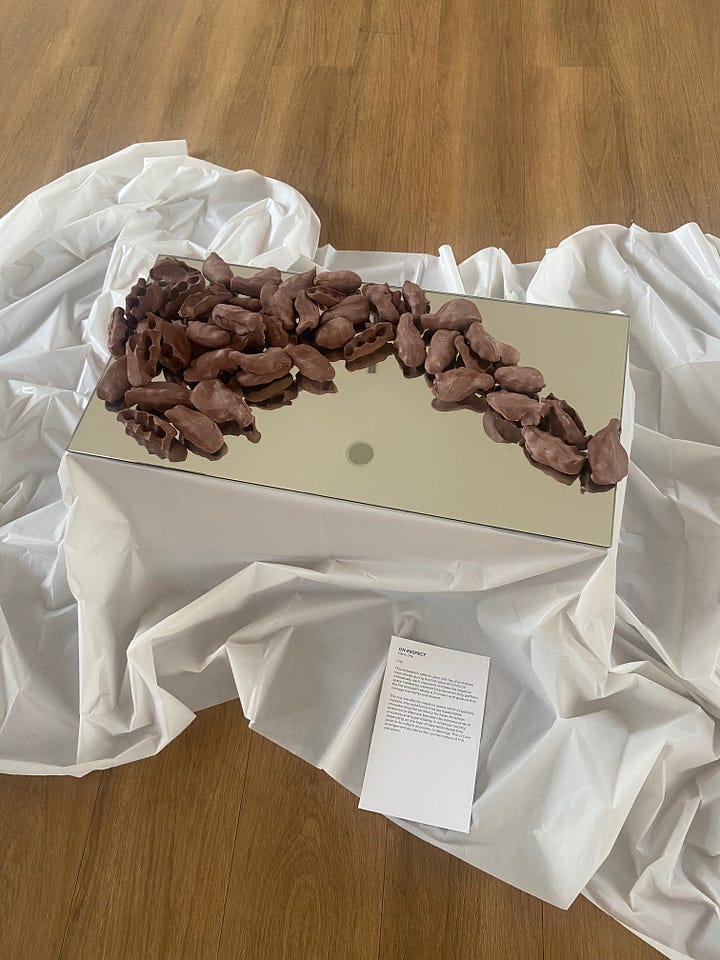
I spoke with Marikit Mayeno (a fellow kabayan!), one of the co-organizers who put together the lovely event, on why she chose to advocate for climate justice and her inspiration behind starting the Climate Justice Club. “I am passionate [about climate justice] because I recognize and appreciate the interrelatedness of all beings.” Marikit told me. Her piece in the exhibition, titled Self-Portrait, showed an intimate expression of her work and advocacy, taking inspiration from her own surroundings to create something so unique and personal. “I plan to create more spaces for artists and activists to share their work and educate the public about environmental justice,” Marikit continued. “In the future, I hope there will be a massive reduction in all forms of energy use and an overall paradigm shift on how Western countries relate to the Earth and more of an adoption of kinship with nature.”
In the conversation with Kamea and Asad, they bring to light how the Global North has relied, and exploited, the Global South for years. As a result, there’s a system of economic inequality in countries in the Global South:
“We've created both a global tax system, a global trade system, and then a punitive system managed by institutions like the IMF and the World Bank and the WTO, which punishes countries if they challenge that logic, and if they, for example, decide to prioritize their own people. Now, often, when we talk about unsustainable debt, for example, which, since 1980, $4 and a half trillion has been paid by the Global South to private banks and governments in the Global North.” — Asad Rehman on “Green Dreamer”
The Philippines is responsible for less than 0.4% in contributions to the climate crisis, whilst the Global North is responsible for around 92%, according to this Guardian story. Despite the Global North contributing the most to the climate crisis, the Philippines - as well as majority of lower-income countries in the Global South - takes the fall as a result, in which the Philippines is placed as the third most exposed country to natural disasters. Each year, an average of 20 typhoons hit the Philippines and cumulatively get worse. Ten years ago, the strongest typhoon, known as Typhoon Haiyan, devastated the Philippines and costed an overall $5.8 billion in damages.
What could be a possible solution that can fix this? Unfortunately, I don’t have an answer to that. This is an issue that’s bigger than any of us and I believe that one of the ways we can work towards a solution is to address the root cause — the global effects of imperialism. As Asad had mentioned in the podcast, there is a cycle created by the Global North that puts the South in a chokehold disables them from creating solutions to the climate crisis. And as long as this cycle continues, we will continue to see the cyclical environmental and economic inequalities and injustices in the Global South.
Follow @climatejustice_tns on Instagram for more!
In other news…
I’m in London! I am so excited to be back, to walk amongst the streets of nostalgia and meet familiar faces again. It’s inspiring to me to see my humbling beginnings, something I will discuss in my next post — so keep an eye out…
May is Asian American Heritage Month! Keep an eye out for local NYC events and other fun things to celebrate our heritage
Upcoming NYC events:
Philippines Festival: May 1 on 5th Ave between 10th and 11th street, come to the all-Filipino festival that celebrates our culture and heritage that features local Filipino American vendors and support FilAm businesses!
Filipino American National Historical Society (FANHS) is holding a general meeting social on May 1 at the Signature Theatre (480 West 42nd). If you’re interested in learning more about the local history of the Filipino community and meet like-minded FilAms, RSVP here!


